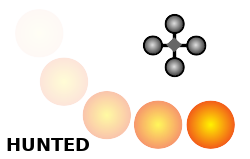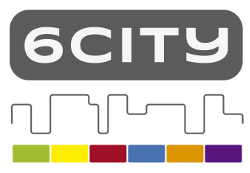Research Projects

The COMBO project (Optimal integration of connected and automated shuttles with passenger and freight transport systems) targets studying the implications, benefits, and impacts on the medium and long-term resulting from the integration of connected and autonomous shuttles with existing transport systems. The project will elaborate a decision-making system to facilitate this integration. Read more...

The ADARS project (Automating the Design of Autonomous Robot Swarms) aims to propose a unique solution to the design of distributed autonomous systems by addressing the following question: is it possible to automatically generate efficient and reusable behaviors for distributed aerospace and space systems (DASS)? To this end, ADARS will advance the state-of-the-art in the field of swarm robotics and automated algorithm design. Read more...

The HUNTED project (Heterogeneous multi-swarms of UNmanned auTonomous systEms for mission Deployment) aims at designing a novel generation of mobility models for heterogeneous multi-swarms of Unmanned Autonomous Systems (UAS) for surveillance and tracking of imminent threats. Such swarms are composed of several vehicles moving in an autonomous and coordinated manner in the air, on the ground, and in the sea. Read more...

In the 6CITY project (TIN2017-88213-R) the working hypothesis is that many different problems of smart cities (according to EU: economy, mobility, governance, people, living, environment), which are multidisciplinary in nature and apparently unrelated, can be solved by looking at their (possibly similar) underlying quantitative and qualitative features, as well as by providing advanced algorithms that can search, optimize and learn by themselves (to an extent) for those situations where knowledge of the problem is very limited (as it happens in many real cases). Read more...

The MOVEON project (TIN2014-57341-R) makes an ambitious proposal for focused research in challenges related to intelligent transport and smart mobility. We do it from the perspective of building new applications based in solver metaheuristic engines enhanced with methodologies and theories contributed by our team so as to exhibit "holistic intelligence". Read more...

The MAXCT project (OTRI # 8.06/5.47.4356 - AOP GGI3003IDI) consists of two parallel applications are running to improve the traffic flow in a city: HITUL - Holistic Intelligence for Traffic Urban Lights - system offers an informed support for decision-making at city level, optimizing the planning of the existing traffic lights network; and CTPATH is our second tool in this project. Drivers could receive route advices based in their preferences and city conditions, both powered to reduce the travel times and the carbon footprint. Read more...

The roadME project (TIN2011-28194) intends to characterize, design, and evaluate metaheuristic techniques able to solve real world problems, and then, particular applications of a communication network of vehicles (VANET). Our hypothesis is that standard metaheuristics are not able by themselves to address the tight requirements of many complex problems like this one, since we are dealing with execution times of a few seconds, specific user constraints, scalable to very big dimension problems, and robust to work in different scenarios. Read more...

The Project PATIO: Collaborative Learning and User Modelling Techniques Applied to Multicultural Integration (TIC-4273), has been developed by the group of Investigation and Application of Artificial Intelligence of the Department of Computer Science and Programming Languages of the University of Málaga, subsidized by the Ministry of Innovation, Science and Business of the Andalusian Regional Government (2008 official announcement for excellence Projects). Read more...




